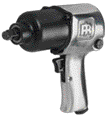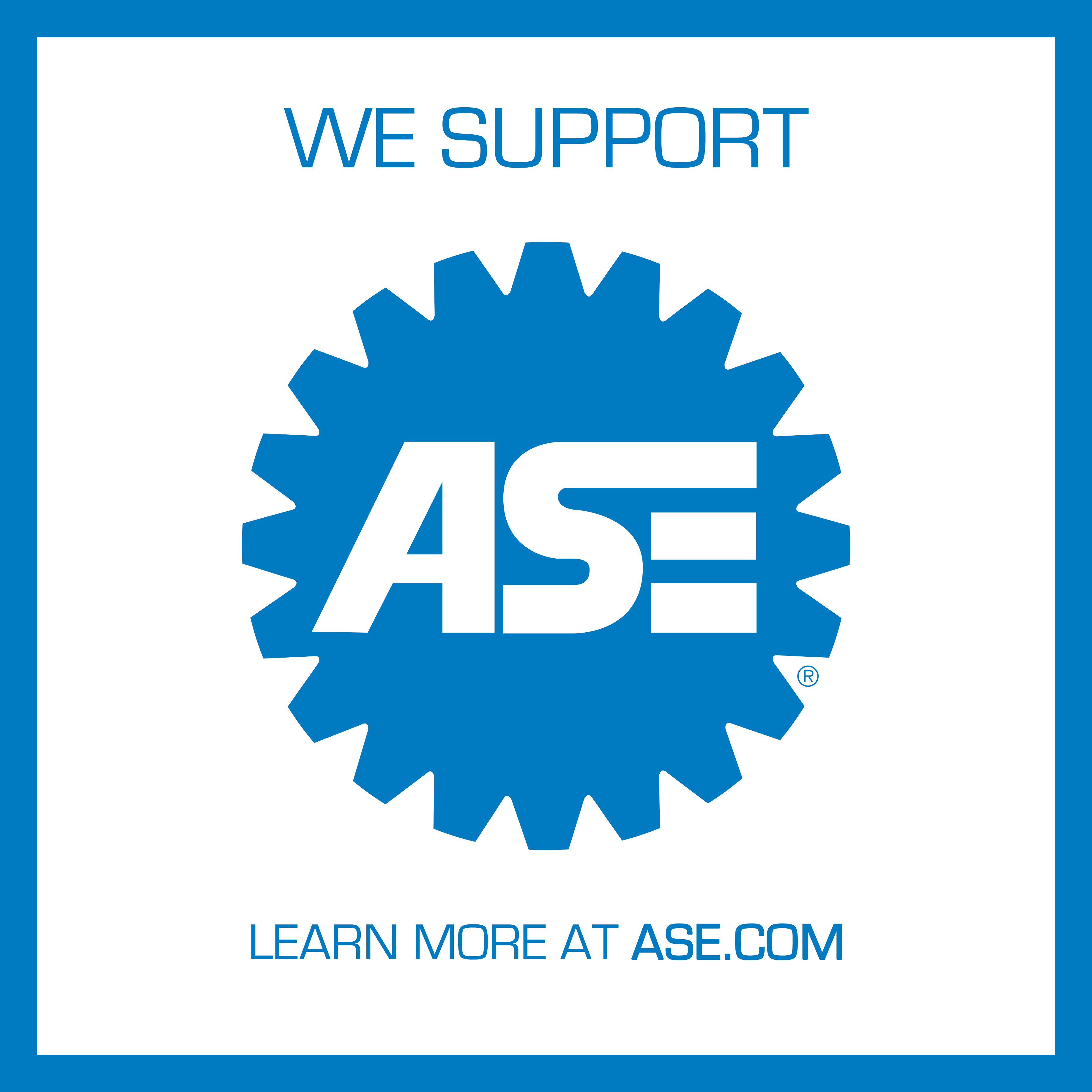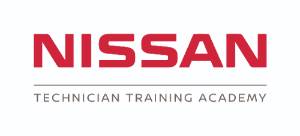Automotive Technology
Apply NowAutomotive Excellence since 1977
Skyline College Automotive Technology programs offer students a well-equipped, modern facility, a large fleet of late model vehicles, and extensive hands-on training. Domestic and import car manufacturers provide substantial support of the programs offered by Skyline College.
We currently offer a global career track training program designed for intermediate and entry-level students. Certificate and AS degree courses are offered during the day and evening. There are a number of advanced evening courses designed for working technicians and advanced level students.
Certifications/Partnerships:
Skyline College is nationally certified by the Automotive Service Excellence (ASE) Education Foundation. This organization certifies automobile technician training programs and signifies that our program meets uniform national standards for instructional facilities, equipment, staff credentials, and curriculum.
Skyline College Automotive is a proud partner of Subaru University, Audi Educational Partnership, Nissan and Infinity Technician Training Academy, Ford ACE, and Mercedes Benz MB Campus.
Professional General Automotive Technology / Mornings
The Automotive Morning program is generic and global in nature. This program covers domestic, European, and Japanese vehicles. Emphasis is on all areas of the automobile except body and heavy duty diesel.
Students are in class 4 days a week for 5 hours a day and experience extensive hands-on training. It takes three years (six semesters) to complete all facets of this program. However, Automotive course requirements for an AS degree can be earned in just three semesters of Automotive classes. Entrance into this program requires a special application and successful completion of prerequisites.
Weekend/Evening
Weekend and evening courses are designed for all levels and abilities. General automotive courses for the do-it-yourselves, entry-level courses for prospective automotive technicians, and in-service courses for the working technician are available. Most weekend courses are designed for the working technicians who want to specialize in Smog Check testing, diagnosis and repair. Other courses are related to diagnosing electrical and driveability problems.
Weekend courses are offered in convenient sessions of two or four meetings. Evening courses are offered in four, eight and sixteen week sessions of two evenings per week. An Associate of Science Degree is available for students enrolled in evening courses.
No special application or tools are required for these courses. Additional materials and lab fees may be applied to certain courses. The class schedule will have more information on each class specifically.
Check out the current class scheduleConsumer Classes / Weekend
Courses are offered on Saturday or Sat/Sun with the consumer in mind. Topics include basic automotive principles and techniques to perform routine maintenance on your own vehicle. In our Car Care Basics for Women course (men are welcome) you will also learn how to select and form a professional relationship with an Automotive repair facility. No special application or tools are required for these courses.
Certificates
Students enrolled in our career track Morning Automotive classes can complete requirements to earn a State of California Certificate of Achievement.
Students enrolled in Evening classes are awarded a Skyline College Automotive Program Certificate upon successful completion of each class.
Degrees
Students in the Automotive Technology program have the option to obtain an Associate in Science Degree by completing their General Education as well as Automotive courses.
We offer two AS Degree Pathways. Each degree pathway consists of required and elective automotive classes.
Program Success
The Skyline College Morning and Evening programs have a five-year average success rate of 90%. Within that same five years we retain 91% of our students. Statistics from the State of California Chancellors office reported that the Skyline College Automotive Morning program has 100% employment after program completion with 71% earning a living wage in the bay area. Most of our students through our internship program will work part-time in the Automotive industry while attending Automotive classes.
| Program | Type | Total Units |
|---|---|---|
| Automotive Technician | AS | 60 Units |
| Automotive Technology | AS | 60 Units |
| Asian Engine Performance Technology | CA | 19 - 20 Units |
| Automotive Advanced Engine Performance Technology | CA | 19 - 20 Units |
| Automotive Chassis, Alignment and Brake Technology | CA | 19 - 20 Units |
| Automotive Drive Train Technology | CA | 19 - 20 Units |
| Automotive Electricity/Electronics | CA | 19 - 20 Units |
| Automotive Engine Performance Technology | CA | 19 - 20 Units |
| Automotive Engines Technology | CA | 19 - 20 Units |
| Automotive Technician - Entry Level | CS | 7 Units |
The Skyline College Morning and Evening programs have a five year average success rate of 90%. Within that same five years we retain 91% of our students. Statistics from the State of California Chancellors office reported that the Skyline College Automotive Morning program has 100% employment after program completion with 71% earning a living wage in the bay area. Most of our students through our internship program will work part-time in the Automotive industry while attending Automotive classes.
Keala Furuya
Lorne Burnham
Demand for Women in Auto Tech has never been greater as the industry continues to expand.
According to the US Bureau of Labor Statistics, “The number of jobs for automotive service is projected to grow faster than average for all occupations over the next decade. Employment growth will create many new jobs, but total job openings will be significantly larger because many skilled technicians are expected to retire and will need to be replaced.”
There is no better program than Skyline to help women to succeed in this industry! If you have questions, contact Instructor Julia Johnson at johnsonj@smccd.edu or 650-738-4485.
Women in Auto TechSkyline College Automotive Department would like to connect automotive students with employers. We look for employers who are willing to take a student with limited experience and teach them what it is like to work in a shop and perform quality work in a timely manner.
Post a JobNote to Employers: We often get inquiries from employers in June and July. By this time, our students are on summer break and most of our graduates have already been working part-time for 2 - 18 months. Most graduates will go to work full-time with their current employer. The best time to find a graduate is sometime between 2 - 18 months before their May graduation date. If you can manage to work with a student part-time for a year, by the time they graduate they will know how you like things done and become wonderful employees.
Internship Program: In our internship program, students earn college credit while they work for you -- like a try before you buy deal. You will employ a student for one semester (typically 3 months). At the end, you can decide to keep the student or part ways. No harm, no foul. During their employment with you, the student will have learning objectives to complete. To find out more about the internship program, contact the department office 650-738-4438 or lamn@smccd.edu.
Having trouble passing a Smog Check? State Smog Referees can assist you with inspections of unusual vehicles and locating hard-to-find emission parts.
The Smog Referee on Skyline campus is open on a limited basis. You can make an appointment through the California Bureau of Automotive Repair.
The Advisory Committee is made up of volunteers who agree to serve as advisors to one or more career and technical programs. Members include representatives from business, labor, community agencies, faculty, students and other members.
The committee provides valuable input in areas such as curriculum development, student recruitment and placement, staff development, equipment and software, making recommendations to strengthen, expand, and improve the quality of the program.
Advisory CommitteeThe Automotive Department at Skyline College accepts donations from private individuals, small businesses and corporations. Vehicles, shop equipment, hand tools, power tools, automotive components, written material, financial support and scholarship funding are typical donations.
Due to our large fleet of training vehicles, we are unable to accept all vehicle donations. By submitting a donation request, you can provide us with the details and photos that we will need to evaluate the educational value of the vehicle you wish to donate. Vehicles with severe mechanical problems or heavy body damage may not prove usable for educating our students. However, you may have a vehicle that has a particular trait or specific system or transmission that would be perfect for our students to learn on.
We encourage everyone who wishes to donate something to our automotive department to fill out the form. We will respond to you promptly.
If you wish to donate funds or scholarship support, every cent will go into the program to enhance the student learning experience or put toward an automotive scholarship that a lucky student can use for books, tools and tuition.
Donation FormUpon completion of the program students will be able to:
- Successfully pass 3 out of 8 Automotive Service Excellence (ASE) exams.
- Apply theories, principles, and concepts to address skills learned that would apply to the NATEF Certified areas of the Automotive Technology Program.
- Exhibit strong and effective written and oral communication skills.
- Exhibit strong electrical and mechanical analytical diagnostic skills.
- Recognize the importance of and practice ethical behavior in a professional work setting, both within the workforce and within the community.
- Successfully complete 100% of P-1 NATEF specific tasks.
- Successfully complete 95% of the P-2 NATEF specific tasks.
- Successfully complete 65% of the P-3 NATEF specific tasks.
Location: Building 8, 8-208
Email: Nancy Lam | lamn@smccd.edu
Phone: 650-738-4438
Resources
- Advancements in Driving Technology (Article)
- AES Diagnostic Tools Sales
- AllData Online Repair Manuals
- ASE Free E-Learning
- Automotive Electronics Services, Inc.
- Automatic Transmission Rebuilders Association (ATRA) Consumer Tools
- AutoShop 101 Free Tutorials & Resources
- BAR Consumer Information Tools
- BAR-certified Auto Shop Locator
- BAR Industry & Licensee News
- Calculate Engine Compression (Online Tool)
- Car Care Tips
- Motor Automotive Data & Magazine
- OBD II Resources from Rick Escalambre
- Underhood Service: Technical Resources
- YouTube Driveline Master
Professional Associations
General and Required Tools
Students enrolled in our career track Morning and Afternoon classes must furnish their own hand tools.
Students in the program are given a list of required tools that  can be obtained from several sources with special student pricing programs through
the College.
can be obtained from several sources with special student pricing programs through
the College.
First-semester student tools cost approximately $500 to $1000, depending upon the brand of tools and the supplier, with a recommended additional tool cost of approximately $1200 to $1400 spread over the remaining semesters. Hand tools and specialty tools are furnished through the Central Tool Room for the Evening and Saturday Programs.
Tools are an investment that will last a lifetime. A quality tool increases your productivity and helps to prevent injury. Quality tool manufacturers include: Snap-On, Mac, Matco, Proto, Craftsman, S & K, and others. See the tool list for qualifying brands and specific tool requirements. Skyline College does not endorse any one brand or manufacturer of tools.
Download the Basic Required Tools and Recommended Automotive Technician Tools .
Application Process
- Apply to Skyline College
- For new students and students who haven't attended a college in SMCCD in over 3 semesters, a general application to the college is required.
- For weekend and evening students: choose "Update Job Skills" as your "Educational Goal" on the college application.
View our Walkthrough for Updating Job Skills for more detail.
- To apply for the Full-Time Morning Program, you must also complete the Special Automotive Program Application:
Questions about the process? Ask about Registration.
You will be notified of acceptance into the program by email along with the assigned class for the semester.
When should I apply?
- The deadline to begin a program in the Fall Semester is April 15.
- The deadline to begin a program in the Spring Semester is November 15.
The application must be received by the deadline to be considered on-time for the following semester.
Late applications are accepted but will only be considered after all qualified on-time applications. If there are still openings in the program after all on-time applications are processed, then fully-qualified late applications are considered.
Extenuating Circumstances Withdrawal
Fill out the extenuating circumstances withdrawal form if you need an exception or waiver to college procedures due to illness, accident, or other circumstances beyond your control. Evidence to justify your request is required.
FAQ
The length of time needed to finish varies between programs:
- Morning Program: 6 semesters over 3 years
- Evening In-Service Advanced Program: can be completed in 2.5 years if taking 2 to 3 classes per semester
- Automotive Associate of Science: Automotive courses requirements for the Automotive Technician AS degree can be completed in 1.5 years (3 semesters).
First semester
- Tuition, Books, Supplies, Health Fees: Approximately $800
- Required Tools (Basic and Course Set): Approximately $900 (Student rate)
For each semester thereafter
- Tuition, Books, Supplies, Health Fees: Approximately $800
- Required Tools (Course Set): Varies (Student rate)
Yes, financial aid and scholarships are available to students who qualify and apply. See more information from Financial Aid office.
You can take Auto 710 during the Summer, if your application is in by the deadline and you have met all other requirements. You must obtain a grade of 'C' or higher in Auto 710 to be eligible for the program.
Yes, you can talk to a counselor prior to enrollment. Drop-in counseling is available or you can contact Counseling to make an appointment or find more information.
Yes, call the Automotive Department at 650-738-4438 to schedule an appointment.
Skyline College is located in San Bruno, which is 20 minutes south of San Francisco and west of the San Francisco International Airport. Our address is:
Skyline College
3300 College Drive
San Bruno, CA 94066
The Automotive Technology Department occupies Skyline College Buildings 11, 10, 9, and part of 8. View a map of the campus.





